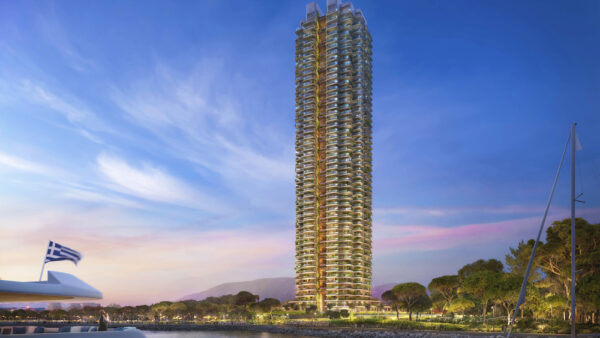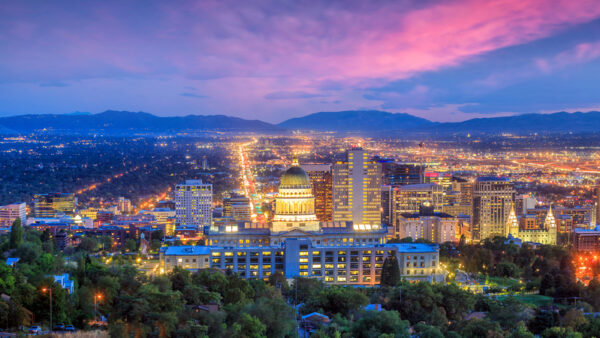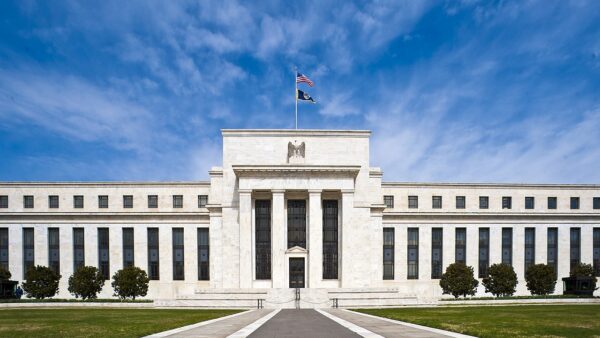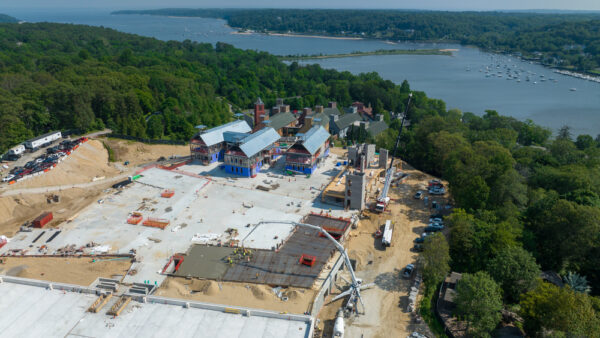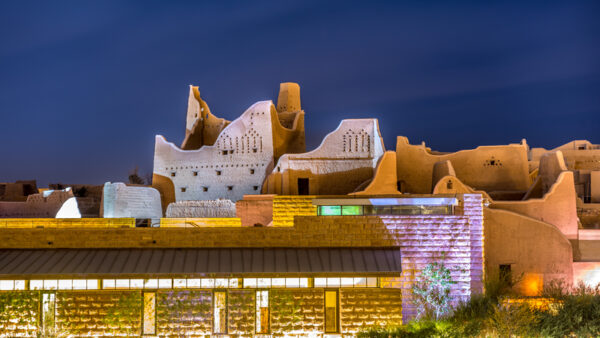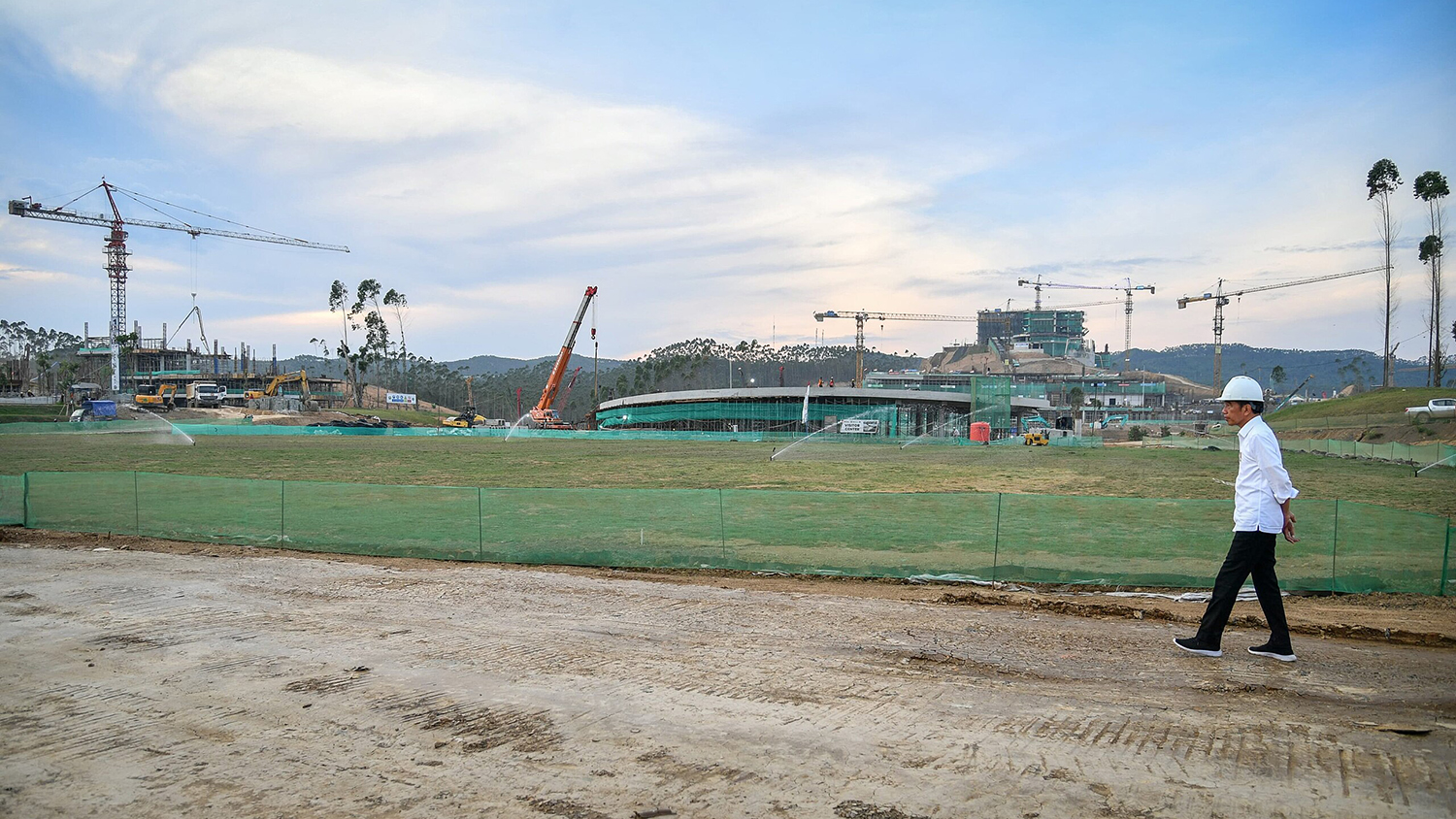
Next week’s presidential election in Indonesia on 14 February has introduced a note of suspense over Nusantara, the country’s new capital under construction in the forests of East Kalimantan on the island of Borneo.
One of three candidates running for president, Anies Baswedan, has criticised the plan, saying it is diverting attention from more pressing problems.
“We see more urgent needs in front of our eyes. In Kalimantan, many damaged school buildings need to be rebuilt, and building railways or toll roads connecting cities in Kalimantan is urgent,” he said during the first election debate in December, reports Nikkei Asia.
“At the same time, we’re building a palace for the president. Where is our sense of justice?” he added.
His remarks stopped short of committing to scrap the scheme.
Son in the running
The current president Joko Widodo has championed the plan since 2019, when he won his second presidential term. He can’t run for a third term under Indonesia’s constitution.
Recent polling suggests that Anies, a former governor of Jakarta province, is heading for a loss against Prabowo Subianto, currently defence minister in Joko Widodo’s government.
Prabowo firmly supports the Nusantara mega-project, as does his vice-presidential running mate, Joko Widodo’s son Gibran Rakabuming.
The circumstances of Gibran’s nomination sparked controversy in October last year.
But one poll concluding 16 January by pollster Indikator Politik suggested Prabowo had widened his lead to around 48.6%, while support for Anies stood at 24.2%.
Support for a third candidate, Nusantara-supporting Ganjar Pranowo, stood at 21.6%, according to the poll.
More than 50% needed
The outcome may not be clear after the vote next week because of Indonesia’s two-round electoral system.
To win outright on the first round, a candidate must get more than 50% of the votes, plus at least 20% of the votes in over half of Indonesia’s provinces.
If no candidate achieves that on 14 February, the third-place candidate drops out and the remaining two go head-to-head in a second round on 26 June.
Concerns over ethics
Prabowo should not be complacent, cautions Yohanes Sulaiman, a lecturer in the School of Government at Universitas Jendral Achmad Yani.
If the contest goes to the second round, that could give time for the concerns over Gibran’s nomination to grow, he said.
Gibran is 36, and the constitution had barred anyone under the age of 40 running for president or vice-president.
To clear Gibran’s way, Indonesia’s Constitutional Court changed the rules in October allowing under-40s to run if they had previously been elected to regional political offices.
Gibran is currently mayor of Surakarta.
The decision was controversial, more so because the court’s chief justice, Anwar Usman, is married to current president Joko’s sister, making him Gibran’s uncle-in-law.
Anwar was subsequently dismissed as chief justice for breaching the court’s code of ethics, but his decision still stands.
Meanwhile, over on Borneo …
Joko Widodo’s long-term plan was to have a new capital city of 2 million people established by 2045.
It was estimated to cost $32bn, of which 80% was to come from the private sector.
In the immediate term, the president set a target of having the government precinct sufficiently ready in time to celebrate this year’s Independence Day there on 17 August.
As 2023 drew to a close, state-owned companies were building basic infrastructure, government offices, and the new presidential palace. Some 45% of the central government precinct had been completed, officials said.
At the end of January this year, the man in charge of delivering the capital, Bambang Susantono, said the presidential palace and Ceremony Square were 54.7% complete.
The 17 August deadline would be met, insisted Bambang, who chairs the Nusantara Capital Authority.
‘Liveable and loveable’
Private investors have not rushed in, however, despite lavish incentives offered by the president just over a year ago.
A private Indonesian consortium broke ground on a $1.3bn hotel and commercial scheme this past September but, to reach Joko’s vision, such investment would need to scale up dramatically.
Speaking at the end of January, Bambang Susantono said around $3bn had been invested in Nusantara so far, of which $2.3bn had come from the private sector.
“We want Nusantara Capital to have a complete ecosystem,” he said.
“Not only public facilities or government offices, but also places for [small businesses], hangout places, stand-up comedy venues, or sports venues. This is what we want to create so that this city is not only liveable, but also lovable.”

